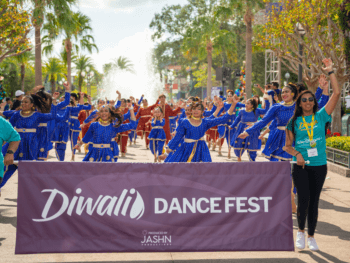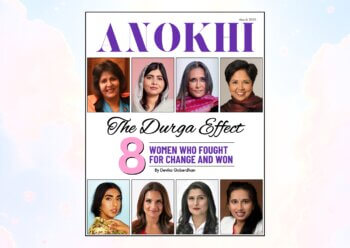
The online gaming world provides refuge for those who seek to live another, more fulfilling life.
Priti is tall, powerful, highly experienced and a valuable asset to her team. She is also extremely goal oriented, in great physical shape and a skilled natural healer. She lives in Vancouver, British Columbia, one of Canada’s most beautiful cities and home of the 2010 Olympic Games. Sadly, she admits she rarely has time to enjoy natural beauty because of her busy schedule.
By the way, Priti happens to be a male druid (avatar)—she is while in front of her computer anyway. In reality she is just over five feet tall, introverted and works at a coffee shop around the corner from her school.
Times are changing and the days when “getting away” meant physically leaving the city or the country are far behind us. Today, all one needs to escape is a computer and some spare time. Online escapism may seem like a less than ideal solution for those who need a break from reality, however, the popularity of games such as World of Warcraft suggests otherwise.
Interacting with our peers in a game setting is much more than a pleasurable pastime. It is fair to say that it is part of being human. With the World Cup and the 2010 Olympics not far behind us, the immense power of a simple game is not hard to understand. The accessibility of online games however, means that anyone, regardless of their limitations can escape the realities of life in the comfort of their own home.
More than simply an escape from reality, games like Blizzard Entertainment’s World of Warcraft offer individuals like Singh the opportunity to shape their identity and their reality in ways that are simply impossible in the real world.
World of Warcraft, commonly referred to as “WoW” is what is known as a massive multiplayer online role-playing game (MMORPG). These games involve hundreds of thousands of individuals interacting with each other in a virtual world, in real time, and allow for complex character and plot developments.
Are you introverted? Overweight? Struggling with your career? WoW and its counterparts give us all the opportunity to be what we are not, without the stresses and strains of making changes to our real lives. Without ever leaving your home you can shape and define a character that is more in line with who you want to be than anything achievable in the real world. Perhaps a leggy, promiscuous blonde who happens to be good with a sword rather than a mother of four? Maybe an angry warlock with a dislike for dwarfs instead of a responsible young lawyer? The options are endless.
No wonder role-playing games have received a great deal of attention in recent years. Offering escape and comfort, these games could quickly become the new opiate of the masses.
Alternative reality games are founded on age-old principles of skill building, goal achievement, teamwork and imagination, all of which offer some sort of positive stimulation to its users. However, the accessibility, quality and complexity of these games can make it difficult for individuals to return happily to reality, making addiction an ever-present threat.
In June 2005 one Chinese couple was criminally charged when their four-month-old infant suffocated to death. The parents had locked the child in their bedroom while they played World of Warcraft at a nearby Internet café for five hours. They returned to find their daughter face down and unconscious on the bed.
Deaths related to video game abuse are more common than you might think. A large percentage of the deaths reported in recent years have been related to malnutrition, dehydration and sleep deprivation.
One of the more widely known deaths related to gaming is that of a Chinese woman who went by the online nickname of “Snowly.” Her death is said to have been caused by a general disregard for her health on account of her addiction to WoW. Gamers held an online funeral in her honour—a fairly common occurrence in the online realm.

Terrible and tragic occurrences such as these have led to some governing bodies, such as the Chinese government, to recognize online addiction as a disease and to begin taking precautionary measures.
It seems logical then to argue that alternative reality gaming is generally a bad thing for personal development. After all, every moment an individual invests in an alternate reality means one less they invest in their own life in the real world and this can’t be good. Right? Not entirely.
According to Bernie Golden, a counselor based in Toronto, what one finds online is not escapism in the traditional sense and it isn’t necessarily a bad thing.
“Any game is an opportunity to ‘check out’ of reality temporarily, and that isn’t always detrimental. Sometimes it can be beneficial to ‘check out,’” he says.
However, alternative reality gaming can provide individuals with much more than a simple escape. “For some people it can be a social gateway that they might not have otherwise,” Golden explains.
Priti is a 22-year-old student and high level World of Warcraft druid living in Vancouver. She says that while her life has been limited by what she labels “sometimes obsessive” gaming, her habits have also given her a great deal of happiness.
“I don’t get outside as much as I used to, but I’m also a lot less nervous about meeting new people when I’m online,” Priti says. “It’s not like I’m not with friends. I’m still around people, just in a different way.” Priti has been playing WoW for just over four years now, originally becoming acquainted with the game after having hip surgery at the age of 18.
“It’s really cool to be able to get away from school, my life, the news and family—which aren’t always the most fun,” she admits. “When I’m online I feel like I’m accomplishing something big . . . I’m always working toward something. I’m not like, the best gamer out there,” she continues, “but I love my character and am always looking for ways to make him better.”
Priti says she chose a male character because she wanted to fit in. “There are more dudes playing than chicks and it seemed like a good idea at the time. I don’t like to use a headset, so as far as everyone else is concerned, I am just a dude. I think the people who use headsets are strange.”
Anonymity is one of the most popular aspects of the game. Blizzard Entertainment recently revoked their plans to make real names mandatory for all online users after an onslaught of negative feedback.
Priti admits to playing on average 30 hours a week, and strongly feels that this isn’t excessive. I still have time for school and I have a part-time job. I know a lot of people who spend 30 hours a week watching TV. I think that’s sad.”
According to Golden, one of the biggest impacts this amount of gaming has on one’s life is a loss of physical contact.“ A large part of our communication comes in the form of body language. When you stop communicating with people face to face, you lose a lot,” he explains.
While Priti may spend a lot of time online as her alter ego, she is nowhere close to those who have allowed their lives to be totally engulfed by RPGs.
Nikhil, a 23-year -old English teacher working in South Korea admits to once having played more than 70 hours week, and sometimes as much as 14 hours a day while enrolled at university in the United States. He no longer plays heavily, admitting that he feels he’s lost the best years of his life to gaming. First acquainted with video games at the age of seven, Nikhil originally turned to RPGs as a means through which to cope with extremely low self-confidence.
“I think I enjoy RPGs because I was never really happy with who I was growing up and it gave me a chance to be someone else. I also found something intoxicating in always being able to make your character better.”
According to Golden, where this becomes dangerous is when the alternate reality begins to totally fill space of the real world. “It can breed the dynamic where it is safer for a person to interact in the game than in the real world. This can take away the motivation or the need to interact in the real world.” In the long term this kind of sheltered and limited existence can permanently harm your sense of self, Golden says. “Leaving your comfort zone is the key to building self esteem. It can become that you are never out of your comfort zone. If you never stretch your abilities and push yourself, one’s self esteem is likely to remain frozen.”
For Nikhil, self-esteem played a large part in his addiction. He did, however, experience a serious priority shift that ultimately defined his life for years. “Classes didn't matter, women didn't matter. It was a terrible way to live, really.” Nikhil does, however, stress that he met his best friend online, and the two now teach together in South Korea.
Priti says that self-esteem has very little to do with her “obsessive gaming,” but does admit she enjoys the safety the game offers her. “Because no one knows who I am, it doesn’t matter how I behave. I can be anyone I want to, and no one has any idea that I’m actually a pretty quiet, low-key student.”
The complex nature of alternative reality games like World of Warcraft truly redefines the nature of gaming. While competition is always present, the complexities and fundamental structures of these online worlds allow for individuals to live their game, rather than merely participate in it.
It is possible to gain excitement and fulfillment in small doses from these games. If you have a promiscuous side, but no outlet to express it, or an aggressively competitive side and no one to compete with, maybe a role-playing game is worth a peek. You might make for a fantastically powerful female warrior. The key to existing happily in these worlds, as with anything in life, is moderation. Good Game.
*please note names have been changed
BY: SHANNON BUSTA / PUBLISHED: SEPTEMBER 2010 ISSUE














































































































